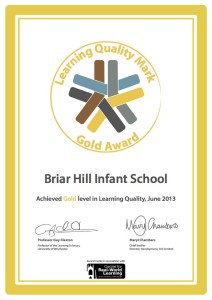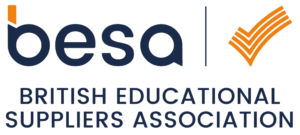The LQF review and verification processes are designed to:
- bring focus and motivation to the school’s action planning. Many schools feel that working towards externalverification brings greater purpose and urgency to implementing change.
- be anything but bureaucratic and box-ticking. Some schools can be put off external verification because of the extra time it seems to soak up in preparing portfolios. The review or verification processes do demand evidence, but it is the evidence that the school itself will need in guiding and self-assessing its own development.
- be exacting and worthwhile. At each level, the LQF indicators are exacting, and the review process seeks evidence against known criteria. The LQF may well be the most challenging change process the school has encountered which is what makes it worth pursuing.
- be rigorous and cost effective. The process is conducted in a very professional and non-threatening manner. All assessors have undergone a rigorous training programme and are skilled in what they do. Different levels of the LQF are more demanding of time and effort and this is reflected in the time for in-school observation. Many of the processes before and after the on-site visit are automated to ensure cost-effectiveness.
- be fair and consistent. The whole process is subject to stringent quality assurance procedures which are managed by TLO Limited and the awarding body, the Centre for Real-World Learning. These procedures will ensure that the assessment process is consistent across different types of school, across different types of approach to learning how to learn, and across the country.
- be undertaken in your own time, at your own pace. Unlike OFSTED, it is up to the school to decide if and when it is ready to be assessed. If the school is unsure about its state of readiness, using the Level Assessment Chart and a free pre-assessment check will ensure the assessment process is not activated in vain.
- be evaluative and forward looking. This assessment process is not just to look at ‘what-is’ but to evaluate whether what has been achieved, will be valuable in moving forward. It answers the question – is this …process, curriculum, teaching approach etc. rigorous or extensive enough to act as a springboard for moving to the next level? The assessment report underpins further long-term action planning.
- be celebratory. Where insufficient evidence is found the assessment process is deferred. This is not a failure — it means the school’s practice does not reach all the requirements yet. The assessor will identify the gaps and will re-assess the school in six months. The award of a level of the LQF, formalised through certificates and logos, is something to celebrate and worthy of inclusive award ceremonies. Invite famous people to make the awards, and press coverage to make sure the community knows what the school stands for.
A free pre-assessment check of your Level Assessment Chart.
The Assessment Planning tool, to help you to prepare for assessment.
- Phone and email support prior to assessment.
- An assessor visit on site to conduct interviews, lesson observations, a school tour and documentation scrutiny.
- The assessor’s report.
- On successful assessment:
- a letter of award
- a framed certificate of award
- electronic versions of the award logo for use on stationery, etc.
Accreditation lasts for three years from the date of assessment.
Desktop Review: Pre-verification check
In working with the Learning Quality Framework, the school is likely to have implemented its Action Plan in a holistic way. In so doing it is easy to lose track of the individual indicators — what has been achieved and what would prove this.
In deciding whether to seek verification of a level, the school is encouraged to simply note what has been done, and the evidence for this, in note form against each indicator at a particular level – using the Level Assessment Chart (LAC).
This process calls for clarity of thought on, and clear understanding of, what the school has been doing in relation to each indicator.
While the LAC is not proof that the LQF level has been achieved it does give a snapshot of progress.
To ensure the verification is timely and worthwhile, TLO offer a pre-assessment check of a school’s LAC. The reported action and ideas of evidence will give a picture of whether the school would be wise to go for verification of the level or whether this should be delayed in order to first strengthen particular areas of practice.
Once your proposed verification has been ‘approved’ the school will be advised and a verifier will be appointed.
The On-site review or verification Visits
 The ‘assessment’ visits will last one day in a small primary school and up to three days in a large secondary school. The process will feel more ‘done-with’ than ‘done-to’ and in some cases staff may be involved in assisting with classroom observation.
The ‘assessment’ visits will last one day in a small primary school and up to three days in a large secondary school. The process will feel more ‘done-with’ than ‘done-to’ and in some cases staff may be involved in assisting with classroom observation.
The assessor will talk to senior and middle leaders, a cross-section of staff, and some students. In some cases parents and governors will also be involved.
At the end of the visit the assessor will give a verbal feed-back. For a level verification This is a provisional ‘assessment’ judgement, which will indicate whether the evidence provided by the school is sufficient for the selected award level.
Where the evidence is insufficient the assessment becomes ‘staged’. This gives the school the opportunity to return to the assessment process when it has responded to the identified shortfalls. The return on-site visit will only be concerned with the identified shortfalls unless significant changes have occurred within the school in the meantime.
Progress Report or Verification Report
These reports serve two functions.
Firstly summative. A report states the evidence observed and gives specific examples of how the school either meets or has progressed towards an LQF level, principle by principle.
Secondly formative. While a report captures and celebrates good practice it also identifies where evidence may be adequate but a little thin for building the next stage. Recommendations are made for what the school needs to do to make sure of success either at the current or at the next level.
Extracts from level verification reports.
In order to develop further, the school should:
- Audit existing schemes of learning to ensure that all learning skills are receiving sufficient coverage in teachers’ planning;
- Consider how they will induct new students into the school’s language of learning, and how learning to learn will be planned for and delivered;
- Ensure that split screen teaching is spread more widely and that leaning skills are discussed at the level of the 17 learning capacities;
- Consider how to spread further the excellent practice observed in the lessons of lead teachers;
- Audit schemes of learning to assess levels of challenge, and seek further evidence on this during learning walks;
- Give attention to how it might involve students further in the design, delivery and monitoring of learning;
- Consider and plan for how the school will further engage parents with the school’s learning agenda.
These recommendations relate to the Action dimension of LQF
This secondary school has been awarded Bronze level.
The school’s learning framework, which is understood by staff, is currently captured on paper as a diagram. The depth and sophistication of the framework needs now to be turned into a narrative in order to better inform school policies and clarify the way in which the school’s ‘toolbox’ capacities are developed.
This recommendation relates to the Commitment dimension of LQF.
This primary school has been awarded Silver level but on many indicators was close to Gold.
Award of Learning Quality Mark
 The Learning Quality Mark is awarded in association with The Centre for Real-World Learning at the University of Winchester. TLO Limited and The Centre for Real-World Learning have joint responsibility for quality assuring this award.
The Learning Quality Mark is awarded in association with The Centre for Real-World Learning at the University of Winchester. TLO Limited and The Centre for Real-World Learning have joint responsibility for quality assuring this award.
The school can apply for this award when a level of the Learning Quality standard has been verified by an external assessor. This aspect is optional and will incur a small extra charge.
The awarding body has to receive a copy of the school’s Level Assessment Chart alongside the verification report. Both are scrutinised to ensure consistency and fairness of judgments.
The school will then receive:
- a copy of the verification report
- a signed certificate for display
- a letter of award confirming the Level of the award and the renewal date
- a copy of the LQF logo with the award designation, for use on school stationery and websites, etc.
It is the awarding body that confirms the Level of Award and signs the certificate and letter of award.
Accreditation lasts for three years. A number of follow-on options are available:
- You can remain at your verified Level and improve your provision within it, responding to the assessor’s feedback and improvement points, and then renew your accreditation at that level before the three-year limit;
- You can use the Learning Quality Framework to develop your practice and progress towards a higher level over a time span of your choosing, up to a maximum of three years. You can seek accreditation at the higher level at any time within the three-year period.
- You can use the LQF as a development framework without seeking further accreditation. After three years your accreditation will lapse and the Awarding Body will issue a de-recognition letter which requires the school to remove the logo from all aspects of stationery, websites, etc. and to remove the certificate from public display.
[button link=”?page_id=1333″]next: Success stories[/button]
